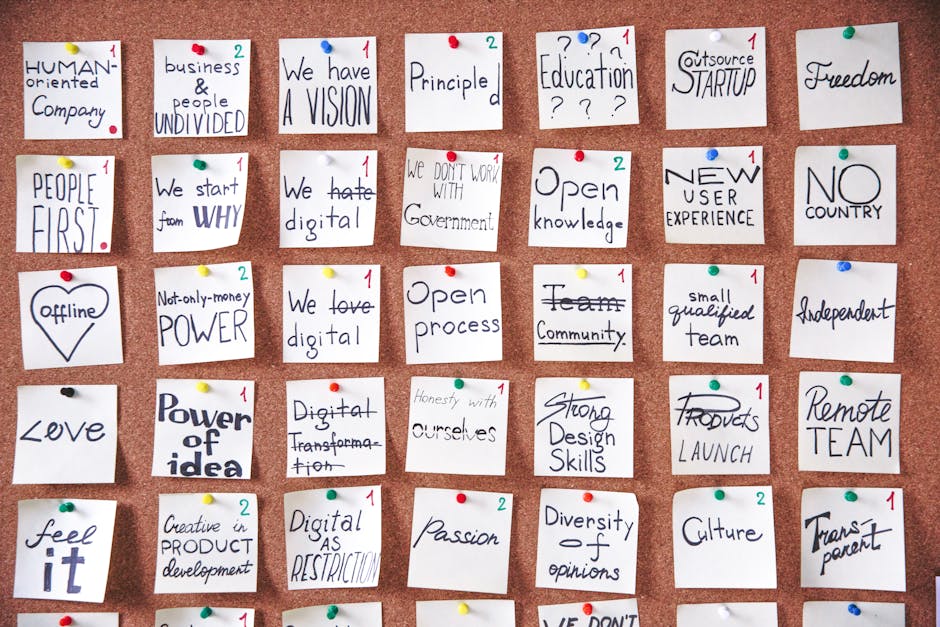The Unseen Curriculum: Invisible Skills That Boost Online Learning
In the evolving world of online education, the focus often lies on visible components—content, platforms, and technologies. However, an unseen yet powerful force that determines a learner’s success is the 'invisible curriculum': the subtle, often overlooked skills and attitudes that shape online learning experiences. Understanding and harnessing these invisible skills can offer learners a competitive edge, enhancing engagement, retention, and overall educational success.
Understanding the Unseen Curriculum

The term "unseen curriculum" refers to the set of skills, values, and behaviors that are not explicitly taught but are crucial for success in online learning environments. It encompasses traits such as self-regulation, resilience, and emotional intelligence. In a traditional classroom, these elements might be developed through peer interactions and teacher guidance. However, in online settings, they often necessitate a more deliberate approach.
Why Are Unseen Skills Important?
In online learning, where direct supervision is minimal, students must rely on their self-management abilities to stay motivated and engaged. Studies show that learners with strong emotional intelligence can navigate the challenges of online education more effectively, creating a greater likelihood of course completion. According to an article by Harvard Business Review, fostering these soft skills can significantly enhance academic and professional outcomes.
The Role of Self-Regulation in Online Learning

Self-regulation is the cornerstone of successful online learning. It involves the ability to manage one’s thoughts, emotions, and actions to achieve specific goals. Unlike traditional settings, where instructors may provide immediate feedback and motivation, online learners must cultivate their self-discipline.
Strategies for Enhancing Self-Regulation

-
Set Specific Goals: By defining clear, achievable objectives, learners can maintain focus and direction. Breaking down larger tasks into smaller, manageable chunks helps prevent overwhelm.
-
Reflect on Progress: Regularly assessing one's performance is crucial. This could involve journaling about the learning process or utilizing digital tools that track progress towards goals.
-
Create a Structured Environment: Establishing a consistent study space and routine can minimize distractions and enhance concentration.
For deeper insights on creating structured virtual learning environments, check out this resource on Designing Engaging Virtual Course Environments.
The Importance of Resilience

In the face of challenges, resilience—the ability to bounce back and adapt—is vital. Online learners often encounter technical difficulties, time management issues, and the psychological stress of isolation. Developing resilience not only helps them overcome these hurdles but also prepares them for future challenges in their careers.
Building Resilience

-
Cultivate a Growth Mindset: Emphasizing effort over innate ability encourages learners to perceive challenges as opportunities for growth.
-
Seek Feedback: Engaging with peers or instructors for constructive feedback can help learners adjust strategies and improve.
-
Develop a Support Network: Online communities can provide emotional and moral support, helping learners feel less isolated in their educational journey.
For further reading on the importance of resilience in education, consider exploring this piece about Emotional Intelligence in Online Education.
Emotional Intelligence and Its Impact on Learning

Emotional intelligence (EI)—the ability to understand and manage one’s emotions while empathizing with others—plays a crucial role in online learning. It’s essential for collaboration, conflict resolution, and effective communication, all of which are increasingly important in a remote education landscape.
Keys to Enhancing Emotional Intelligence

-
Practice Active Listening: Engaging fully with peers and instructors fosters deeper connections and enhances collaboration.
-
Embrace Diversity: Exposure to diverse perspectives can broaden understanding and empathy, essential elements of emotional intelligence.
-
Manage Stress Through Mindfulness: Techniques such as meditation and breathing exercises can help maintain emotional balance and focus.
For those interested in leveraging emotional intelligence in online courses, take a look at strategies for AI-Powered Empathy Training.
The Power of Collaboration

While online learning can be solitary, it doesn’t have to be. Collaborating with peers can amplify the learning experience, introducing diverse perspectives and shared knowledge. Establishing rapport among learners creates a supportive environment, ultimately enhancing individual success.
Enhancing Collaborative Skills

-
Engage in Group Projects: Collaboration on assignments reinforces communication and negotiation skills.
-
Utilize Digital Tools: Platforms such as Slack, Google Workspace, or Zoom provide mediums for real-time collaboration, fostering a sense of community among learners.
-
Share Resources: Encouraging a culture of sharing knowledge and resources can deepen understanding and build trust within the learning cohort.
For methods on transforming collaborative learning, consider exploring Collaborative Online Learning Through Virtual Reality Dynamics.
Developing a Personal Learning Strategy

Every learner is unique, and a personal learning strategy is crucial for online success. A well-defined strategy incorporates the unseen skills mentioned above—self-regulation, resilience, communication, and collaboration—tailored to the individual’s needs, preferences, and goals.
Steps to Create a Personalized Learning Plan

-
Identify Learning Styles: Understanding whether one learns better through visual, auditory, or kinesthetic means can tailor the learning experience to maximize effectiveness.
-
Set Up Time Blocks: Scheduling dedicated time for study ensures consistency and helps integrate learning into daily routines.
-
Incorporate Feedback Loops: Regularly assessing learning plans ensures they remain effective and adaptable based on individual progress.
Leveraging Technology for Skill Development

Modern technology provides an array of tools that can facilitate the development of unseen skills. From apps that support organization and time management to platforms that enhance collaboration, learners can utilize technology to their advantage.
Essential Tools and Applications

-
Project Management Tools: Applications like Trello or Asana assist in tracking assignments and deadlines, enhancing self-regulation.
-
Mindfulness Apps: Dedicated apps for mindfulness and meditation can help manage stress and enhance emotional intelligence.
-
Social Learning Platforms: Utilizing platforms designed for peer-to-peer learning can develop collaboration and communication skills.
Navigating Digital Learning Ethics

Understanding digital ethics is an often-overlooked skill crucial for online learners. Ethical considerations regarding online behavior, the use of technology, and privacy can significantly impact learning outcomes. Educators and learners alike must navigate these dimensions carefully.
Key Considerations for Digital Ethics

-
Digital Footprint Awareness: Understanding the long-term implications of online activities is vital for maintaining a positive digital reputation.
-
Respecting Intellectual Property: Knowledge about citation and plagiarism is crucial for maintaining integrity in virtual learning spaces.
-
Creating Inclusive Environments: Recognizing the diversity of online learners and accommodating various needs fosters an ethical and supportive learning community.
Learn more about these crucial discussions surrounding digital ethics in education through this article on Harnessing Digital Ethical Dilemmas in Education for Future Leaders.
Engaging in Lifelong Learning Habits

The need for continuous learning is a hallmark of the modern educational landscape. Embracing lifelong learning as a principle can help learners adapt to growing demands across various fields.
Tips for Lifelong Learning
-
Stay Curious: Cultivate an inquisitive mindset that embraces learning in every context.
-
Explore New Technologies: Keeping up with advancements in educational technology can amplify learning opportunities.
-
Network and Engage: Participating in webinars, workshops, and conferences helps build connections and rejuvenate enthusiasm for learning.
For those curious about the future of education, explore how AI Will Transform Online Education in 2025.
Final Thoughts
The unseen curriculum is a vital element of online learning success. By recognizing the importance of invisible skills such as self-regulation, resilience, emotional intelligence, and collaboration, educators and learners can enhance the online educational experience. Embracing these skills not only elevates academic outcomes but also prepares individuals for the complexities of professional life in an increasingly digital age.
The truth is, the future of education goes beyond simply acquiring knowledge. It's about cultivating a holistic set of competencies that prepare learners to thrive. As we navigate through the evolving landscape of online courses, paying attention to these unseen skills will be pivotal. So, let's embark on this journey together and transform the way we learn!



